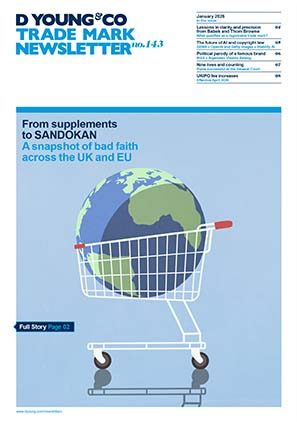Not always-so-easyGroup: easyGroup successful in infringement action but trade marks partially revoked
EasyGroup’s infringement proceedings against Easy Live Services Ltd, although successful, have led to the partial revocation of certain easyGroup marks on the basis of non-use.
Background
Easy Live Services Ltd (ELA) develop and market software and other services for use in online auctions. In the course of its business ELA has used a variety of “Easy Live Auction” signs (shown below) and own a trade mark registration for EASY LIVE AUCTION.

easyGroup brought a claim against ELA and its two directors for infringement of its registered marks, including: easyJet, easyGroup, easyMoney, easyProperty and Easy Network.
First, easyGroup alleged that the ELA signs created a likelihood of confusion with its own marks, and so were an infringement of s.10(2) of the Trade Marks Act 1994.
Second, easyGroup alleged under s.10(3) of the Trade Marks Act that the signs ELA used took unfair advantage of, and were detrimental to, the reputation of the easyGroup marks. easyGroup also sought revocation of ELA’s registered mark.
ELA denied these allegations and counterclaimed for revocation of several services for which the easyGroup, easyMoney, easyProperty and Easy Network marks were registered.
Decision
The ruling judge, Sir Antony Mann, found that the visual, oral and conceptual similarities between the ELA signs and easyGroup marks varied from very low to moderate, but that the services at issue were not similar. Hence, the s.10(2) claim failed.
Furthermore, it was found that only the easyJet, Easy Network and easyMoney marks had a reputation for the purposes of s.10(3). Of these, only the Easy Network mark was considered to have been adversely affected by ELAs signs, and so was the only mark in which the s.10(3) claim succeeded.
Whilst goodwill in the easyGroup marks and misrepresentation in relation to two of the ELA signs were established, the claim in passing off failed on the basis of there being no likelihood of damage being suffered by easyGroup.
Date of assessment
One of the key disputes related to the date of assessment for establishing infringement. EasyGroup sought to rely on Walton International v Verwij Fashion, taking the relevant start date as being that of first use of the sign, and if that is outside the six-year limitation period, then the first date within the limitation period should be used.
However, in the this case, Sir Antony Mann departed from Walton International v Verwij Fashion and agreed with ELA that the proper date of assessment is the date of first use of the infringing sign. This date would only change if there was subsequent use of the sign in a materially different form.
Revocation
ELA argued that the easyGroup marks relied on were not put to genuine use in respect of certain of the relevant services for which they were registered, and counterclaimed for partial revocation of the easyGroup marks.
The court concluded that ELA’s counterclaim for revocation should succeed as easyGroup had failed to produce sufficient evidence showing its use. The only exception to this was “Data communications services” registered under the EasyNetwork mark.
The judge decided not to rule in relation to easyGroup’s claim for revocation of ELA’s mark, but in light of his earlier decisions, he was sceptical that this would survive.
In short
While easyGroup was successful in the claim as a whole, this decision serves as a reminder that trade mark registrations may be cut back if the owner cannot show genuine use of the same for all the services for which the marks are registered.
Case details at a glance
Jurisdiction: UK
Decision level: High Court
Parties: Easygroup Limited v Easy Live (Services) Limited, Achilleas Pavlou Achilleous, Jonathan Richard Dean Burnside
Date: 21 December 2022
Citation: [2022] EWHC 3327 (Ch)
